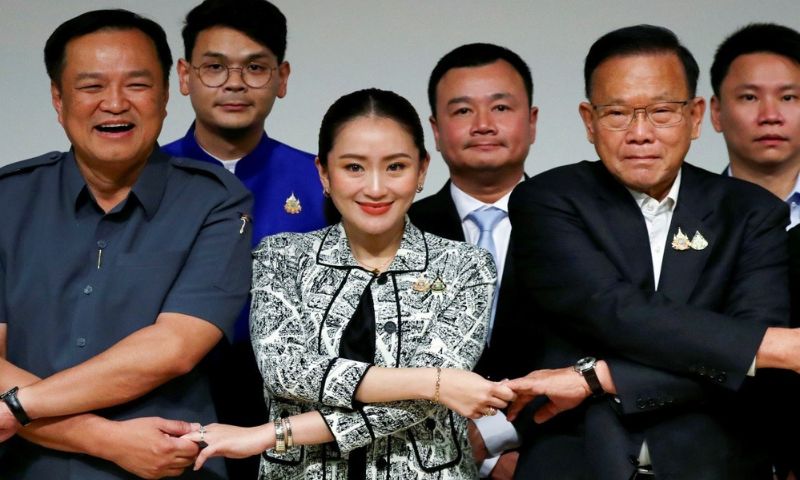BANGKOK: Thailand’s Pheu Thai party has officially nominated Paetongtarn Shinawatra, 37, as its candidate for prime minister, following the dismissal of incumbent Srettha Thavisin by the Constitutional Court on Wednesday.
The announcement was made on Thursday by Pheu Thai’s secretary general, Sorawong Thienthong, in a press conference held in Bangkok.
Paetongtarn Shinawatra, the daughter of former billionaire Prime Minister Thaksin Shinawatra, represents a significant shift for the party. She will face a parliamentary vote on Friday, where Pheu Thai, the leading party in a governing coalition, is expected to push for her approval.
“We decide to nominate Paetongtarn Shinawatra,” Sorawong Thienthong announced, highlighting the party’s confidence in her ability to address Thailand’s economic challenges and political instability.
Following the court’s decision to remove Srettha Thavisin, who was found to have breached regulations by appointing a cabinet minister with a criminal conviction, Thailand’s political landscape has been thrown into further uncertainty. Srettha’s dismissal marks the third time a prime minister from Pheu Thai has been removed by the Constitutional Court in less than a year.
Paetongtarn, who was selected over veteran Pheu Thai member Chaikasem Nitisiri, represents a generational shift within the party. Political analyst Yuttaporn Issarachai noted that the choice reflects Pheu Thai’s strategy to appeal to younger voters.
However, he cautioned that overcoming the entrenched conservative and military influences in Thai politics will be a significant challenge.
The move to nominate Paetongtarn comes amid ongoing political turbulence that has plagued Thailand for two decades. This period has been marked by frequent coups, street protests, and legal battles, often involving conflicts between progressive parties and the military-backed establishment.
Thaksin Shinawatra’s return to Thailand last August, coinciding with Srettha’s rise to power, initially suggested a truce between Thaksin’s allies and pro-military factions. However, recent events, including the dismissal of Srettha and the ongoing controversies surrounding party dynamics, have underscored the persistent volatility in Thai politics.
The Constitutional Court’s case against Srettha was instigated by 40 former senators appointed by the 2014 military junta that had previously ousted a Pheu Thai-led government. These senators played a key role in blocking the Move Forward Party (MFP) after it won the popular vote in last year’s elections but was prevented from forming a government.
The MFP’s campaign for reform faced fierce opposition from conservative elements within the political establishment. The court’s recent decision to dissolve the MFP and ban its leader, Pita Limjaroenrat, from politics further complicated Thailand’s political landscape.























